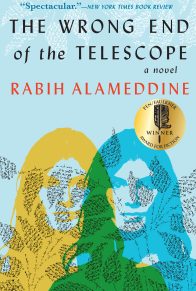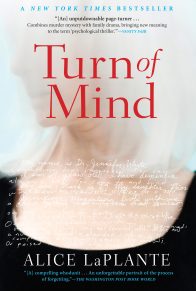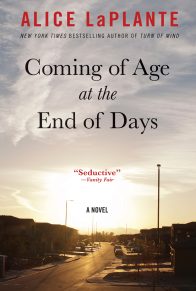1. The book is narrated by four different characters: Detective Samantha Adams and Dr. Taylor’s three wives: Helen, MJ, and Deborah. How does this structure provide a more well-rounded understanding of each character? Which of these characters voices do you connect with most? Why?
2. Detective Samantha Adams’s first lines in the book are: “I am nothing if not irresolute. Excuse the double negative” (p. 1). What do these opening lines tell us about her character? Discuss how this introduction fits with the stereotype of a police detective.
3. Dr. Taylor’s second wife, MJ, is introduced at his funeral mass. What do we initially learn about MJ’s character? Consider how this chapter foreshadows what we ultimately discover about MJ and her path in the book.
4. Dr. Taylor’s third wife, Helen, tells MJ and Deborah that they are “a circle of wives” (p. 33). Why does she use this turn of phrase? Is it accurate? What meanings does this phrase have in addition to its literal one? Discuss the contributions that each wife makes to the “circle.”
5. Detective Adams interviews MJ, Helen, and Deborah in back-to-back chapters. What are the similarities and differences in how each wife responds to learning that her husband was married to two other women? What clues are revealed about each wife’s potential guilt or innocence in their interviews?
6. Helen opens up to a woman she thinks is a neighbor before realizing the woman is a reporter. Then Helen muses on whether modern psychiatry will develop medication to help keep a person’s guard up. “The world will be a healthier place. But even so, despite all that’s happened, I think it will be a far less interesting one” (p. 82). What does she mean by this statement? Discuss whether or not talking to the reporter is cathartic for her. Does she feel more can be gained in her life by letting her guard down, even if the consequences are messy?
7. Samantha’s relationship with her boyfriend, Peter, deteriorates throughout the book. On page 87, Samantha says, “Something about the Taylor case and its web of love and deceit is souring what used to sustain me.” Discuss how the case causes growing dissatisfaction with her relationship. Is she dissatisfied with Peter, herself, or both?
8. On page 95, MJ notes that Samantha is “very professional” despite her pigtails, which MJ had never seen a grown woman wear. Yet when Samantha interviews Helen on page 100, Helen observes that Samantha “seems more nervous than [me],” and notes the “multiple piercings up the sides of both [her] ears” as well as “the remnants of a nose piercing.” What is revealed by these observations about Samantha? Are these observations indicative of MJ and Helen’s values, of Samantha’s personality, or both?
9. Deborah reveals a brief flirtation with a man named Gerald early on in her marriage with John. Gerald, who had a “streak of cruelty,” told her about his recurring temptation to stop the heart of a patient while conducting an operation just because he could. To Deborah this made him “a much more admirable man” than her husband (p. 105). Deborah then reveals that Gerald and his wife were killed when his car crossed over the road’s center line. Deborah says, “Death. Always interrupting things” (p. 106). Does Deborah assume that Gerald’s deadly impulses finally got the better of him? Were Deborah and Gerald a better match for each other? Discuss what else has been interrupted in Deborah’s life by death.
10. MJ reveals that she has a close relationship with her brother Thomas. “[H]e’s my baby brother, and I love him dearly. I would do anything for him, and he knows it” (p. 112). Talk about how MJ’s relationship with her brother compare and contrast with Samantha’s feelings for her deceased brother. How do these relationships inform our understanding of their personalities?
11. When Deborah learns of John’s relationship with MJ, she drives to MJ’s house and, due to stress, vomits outside. MJ comforts Deborah and offers her a glass of water. Deborah drives away because she doesn’t want to be indebted to MJ, and she is incapable of giving/receiving genuine acts of kindness. Later, she says that MJ “saved” her marriage. According to her own belief system, she now owes MJ, and this debt “is not a trivial one” (p. 121). Do you think Deborah’s belief system makes sense, or is it contradictory?
12. Helen discovers she’s pregnant with John’s baby and decides to keep it. She feels guilty for this decision because “if John had lived, this child would not have. It was in our agreement: no children” (p. 154). Why did she decide to keep the baby after John’s death, despite their agreement? What does this decision suggest about their relationship?
13. Samantha asks Peter to role-play as Deborah to prepare for interviewing her. The interview turns cruel as Peter uses the exercise as a way to indirectly express his true feelings about her. Discuss the significance of this role-play. Why does it sting her so much? Examine how this scene foreshadows later events with both Peter and Deborah.
14. As Samantha enters Deborah’s house, she says, “I see a world that will always be out of my reach” and she becomes inexplicably furious (p. 159). In the next chapter, Deborah says that Samantha hungers not for things, “but rather for beauty” (p. 165). Is Deborah correct in her assessment of Samantha? Why or why not? How does Samantha’s fight with Peter from the night before impact her behavior around Deborah?
15. Deborah believes that John’s three wives “added up to the perfect marriage, and he needed all of us in order to have a balanced life” (p. 169). Does she really mean this? Discuss whether or not Deborah is a reliable narrator.
16. Samantha learns that Dr. Taylor had planned to divorce his other three wives and marry Dr. Claire Fanning. Samantha admits that she can’t figure out Claire’s motivation in marrying a man nearly forty years her senior. “I find I’m disappointed by John’s choice. . . . I’ve built an impression of John Taylor, I realize, and it doesn’t have anything to do with marrying young china dolls less than half his age” (p. 208). Why is Samantha disappointed in this revelation? Consider how her “relationship” with Dr. Taylor has evolved since the case began. Has Dr. Taylor “seduced” Samantha?
17. Grady tells Samantha to “ignore the alibis” in trying to figure out Dr. Taylor’s murderer (p. 221). Do you think this is sound advice? Who appears to be the culprit at this point in the book?
18) Samantha confronts MJ with the news that MJ had a strong motive to murder Dr. Taylor, as she would have lost her house. “I see now,” Samantha says, “that any warmth I felt toward MJ was just stupid me wanting to be liked. We are opponents, have been from the start” (p. 229). Why does this news shock Samantha? Has Samantha’s need to be liked impacted her ability to do her job effectively?
19. Samantha feels that her relationship with Peter lacks passion. In their final argument, Peter tells Samantha, “What you don’t understand is that we’ve got what people hope to have after the passion and initial excitement have burned out. We’re best friends” (p. 241). Has Peter misjudged his relationship with Samantha? Do you think Samantha and Peter act like best friends? Consider whether or not passion and friendship are mutually exclusive in a relationship.
20. Samantha acknowledges that Peter is a “sweet man” but that he pales in comparison with John Taylor. She says that Peter “lacks the backbone to forge his way in this world and get what he wants” (p. 254). Discuss how Dr. Taylor represents passion to Samantha. Do you see evidence of Dr. Taylor’s passion toward any of his three wives? Does Samantha esteem the idea of passion to the point that she can excuse bigamy?
21. Deborah’s initial reaction to hearing about Helen’s pregnancy is violent. When she flies to Los Angeles to confront Helen about her unborn child, she learns Helen wants no claim to her estate. Deborah calms down, treating Helen in an almost maternal manner. Why the sudden change in her demeanor? Is it solely related to finances, or does Deborah feel a kinship with Helen that she doesn’t feel with MJ?
22. Helen offers Deborah a place to stay in her apartment, then opens up to Deborah about how she met Dr. Taylor. Are these gestures in line with Helen’s character, or do they reflect a genuine reevaluation of her personality in the wake of her pregnancy and Dr. Taylor’s death?
23. Why does Deborah indulge Samantha’s reenactment of Dr. Taylor’s final moments? Is she paying off a debt she feels she owes Samantha? What is Deborah’s quid pro quo in this scene?
24. Consider whether or not Samantha becomes part of Dr. Taylor’s circle of wives. Why or why not?
25. The “Rashomon effect” occurs when multiple speakers narrate a similar event in a contradictory way. How does the structure of A Circle of Wives affect our understanding of Dr. Taylor’s character? Knowing the outcome of the novel, discuss who was the most reliable and the least reliable narrator.
>b?Suggestions for further reading:
The Woman Upstairs by Claire Messud; Gone Girl by Gillian Flynn; Every Last One by Anna Quindlen; Reconstructing Amelia by Kimberly McCreight













